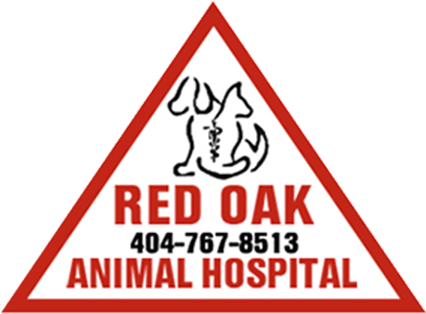Hypothyroidism
Hypothyroidism in Pets in Atlanta, Georgia: Understanding, Managing, and Supporting Your Beloved Companions
Hypothyroidism is a relatively common condition affecting pets in Atlanta, Georgia, much like it does in other regions. Atlanta's diverse pet community and urban environment provide numerous opportunities for proactive pet care. In this article, we will explore what hypothyroidism is, its common causes, symptoms, and how to provide the best care for pets dealing with this condition in the Atlanta area.
Understanding Hypothyroidism in Pets: Hypothyroidism is a metabolic disorder that occurs when a pet's thyroid gland doesn't produce sufficient thyroid hormones, which are crucial for regulating metabolism in the body. While this condition can affect both dogs and cats, it is more commonly diagnosed in dogs. Early diagnosis and proper management are key to maintaining your pet's health.
Common Causes and Risk Factors for Hypothyroidism in Atlanta:
- Breed Predisposition: Certain dog breeds, such as Golden Retrievers and Dachshunds, are more susceptible to hypothyroidism, and Atlanta's diverse pet community includes a wide range of breeds.
- Age: Hypothyroidism is often seen in middle-aged to older pets, and many senior pets call Atlanta home.
- Diet: Atlanta's pet-loving culture may sometimes contribute to dietary choices that impact thyroid health in pets.
Symptoms of Hypothyroidism in Pets: Pets with hypothyroidism may exhibit various symptoms, including:
- Weight gain without a change in appetite
- Lethargy and decreased activity
- Hair loss and poor coat condition
- Cold intolerance
- Skin problems, such as dryness and thickening
- Slow heart rate
- Muscle weakness
Managing Hypothyroidism in Pets in Atlanta: If your pet is diagnosed with hypothyroidism, here are crucial steps to manage the condition effectively in the Atlanta area:
- Consult an Atlanta-Based Veterinarian:
- Seek a veterinarian who understands the unique challenges pets may face in Atlanta. They can provide a proper diagnosis and recommend a tailored treatment plan.
- Hormone Replacement Therapy:
- Treatment typically involves administering synthetic thyroid hormones to replace the deficient ones. Your veterinarian will prescribe the correct dosage and monitor your pet's progress.
- Dietary and Lifestyle Changes:
- Your veterinarian may suggest dietary modifications and lifestyle adjustments to support your pet's overall health.
- Regular Monitoring:
- Schedule periodic check-ups to monitor your pet's thyroid hormone levels and make any necessary treatment adjustments.
Preventing Hypothyroidism in Atlanta Pets: While not all cases of hypothyroidism can be prevented, you can reduce the risk by following these guidelines:
- Quality Nutrition:
- Provide your pet with a balanced diet that meets their specific nutritional needs.
- Regular Exercise:
- Ensure your pet gets regular exercise and maintains a healthy weight.
- Routine Veterinary Care:
- Schedule regular check-ups with your veterinarian to catch any early signs of hypothyroidism or other health issues.
Hypothyroidism is a manageable condition for pets in Atlanta, Georgia, with proactive pet care, early diagnosis, and expert veterinary guidance. By paying attention to your pet's thyroid health, diet, and environment, you can protect their well-being in the dynamic and pet-friendly community of Atlanta, ensuring a happy and healthy life for your furry friend.
Phone:
Address:
4895 Ben Hill Road, College Park, GA 30349
